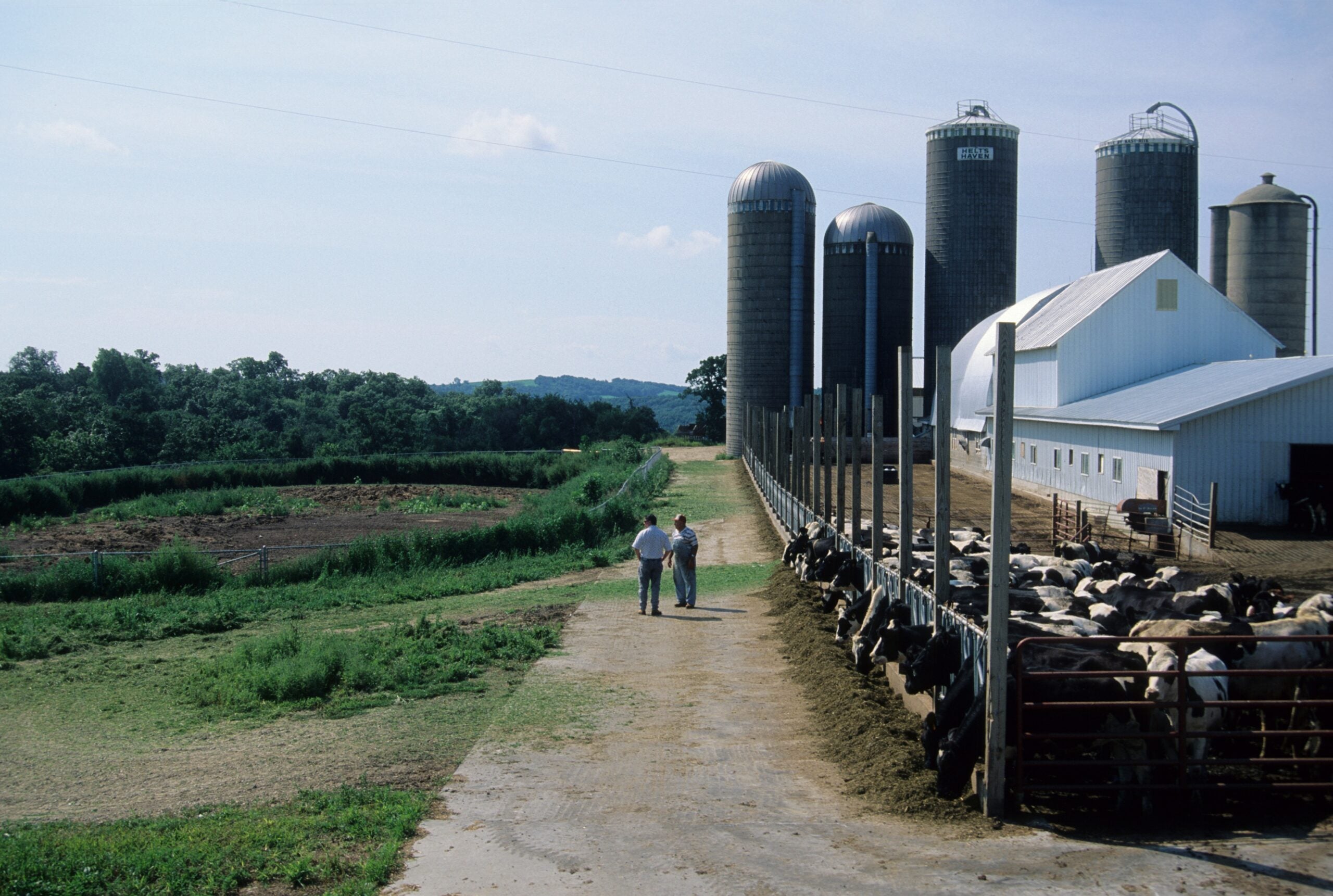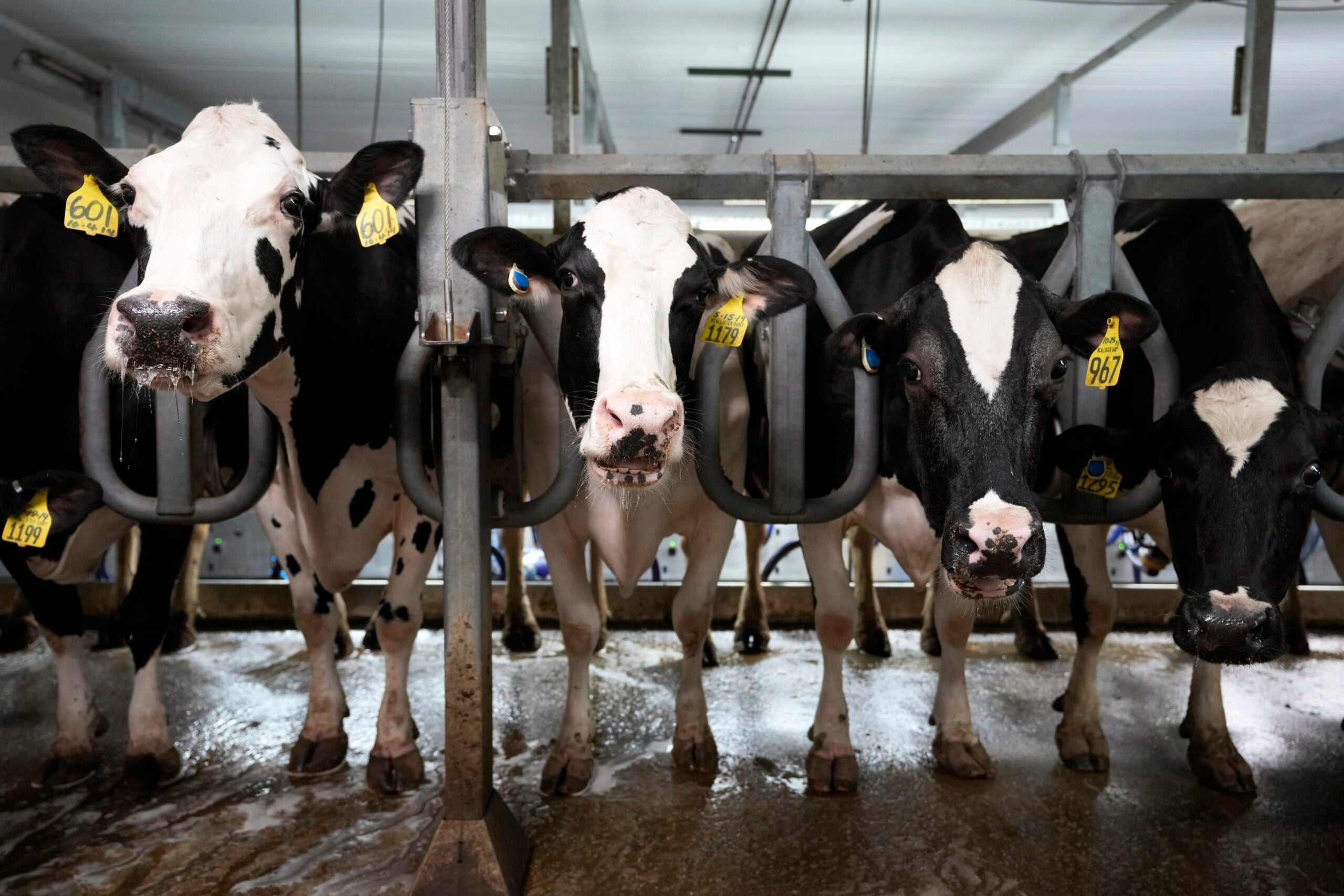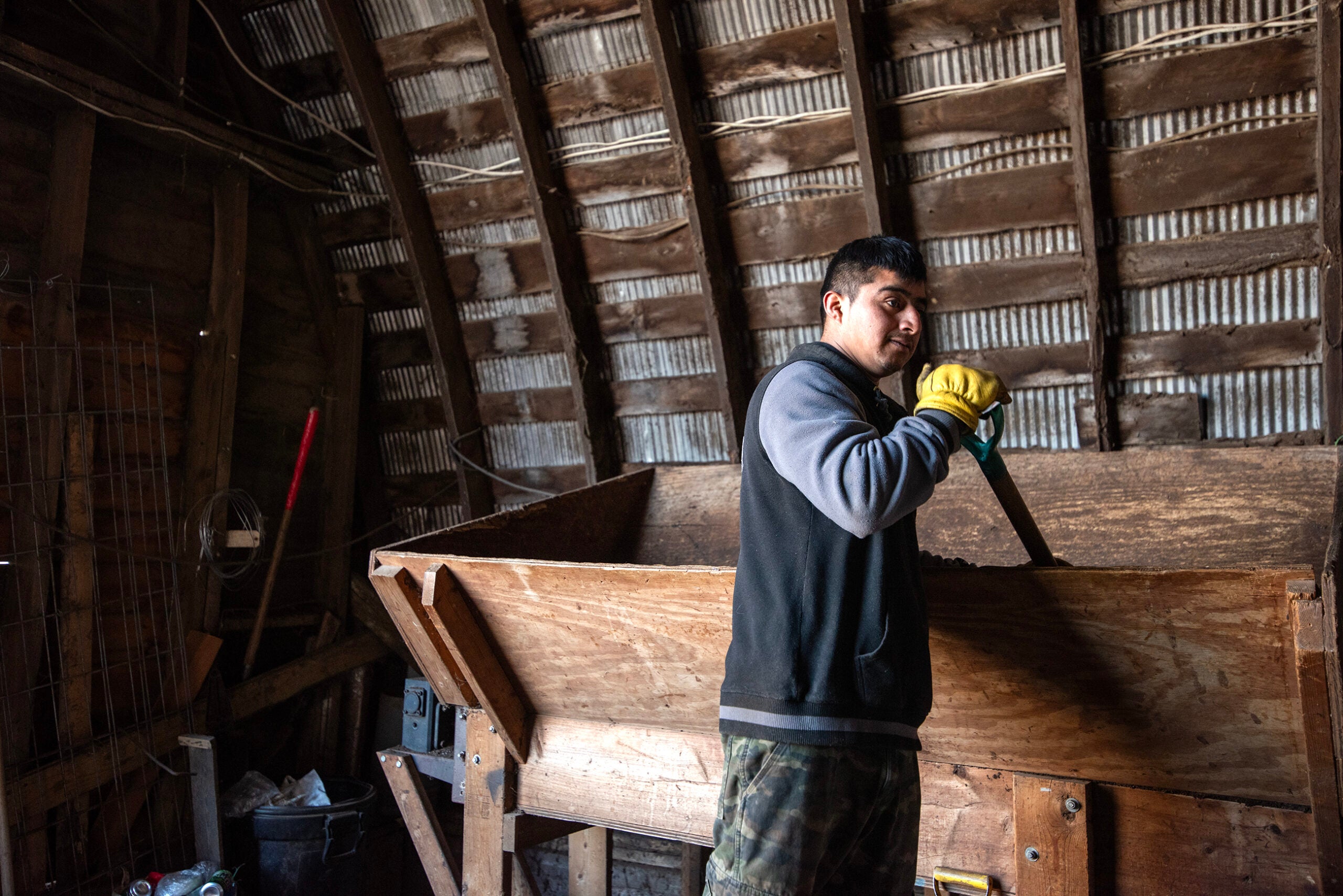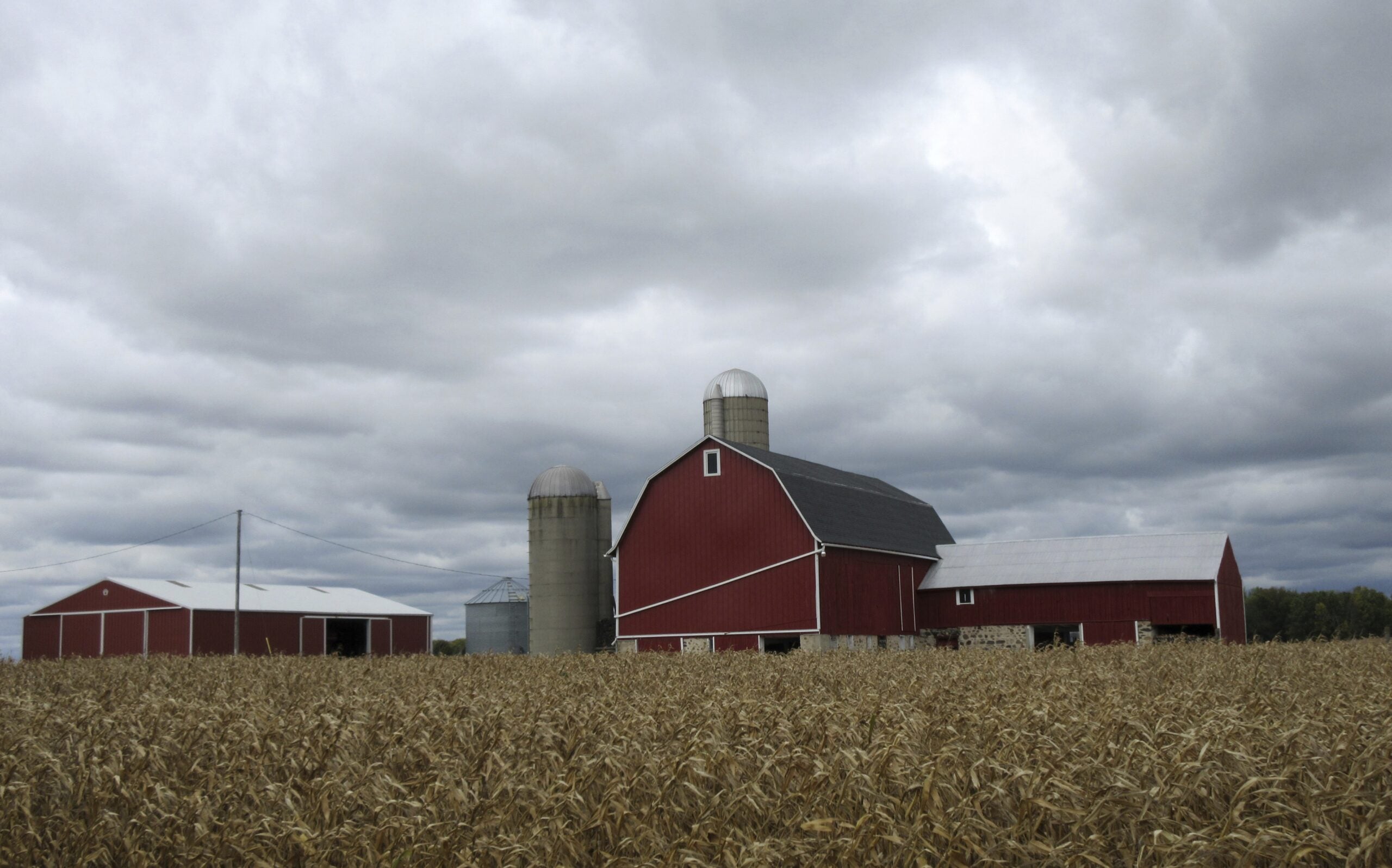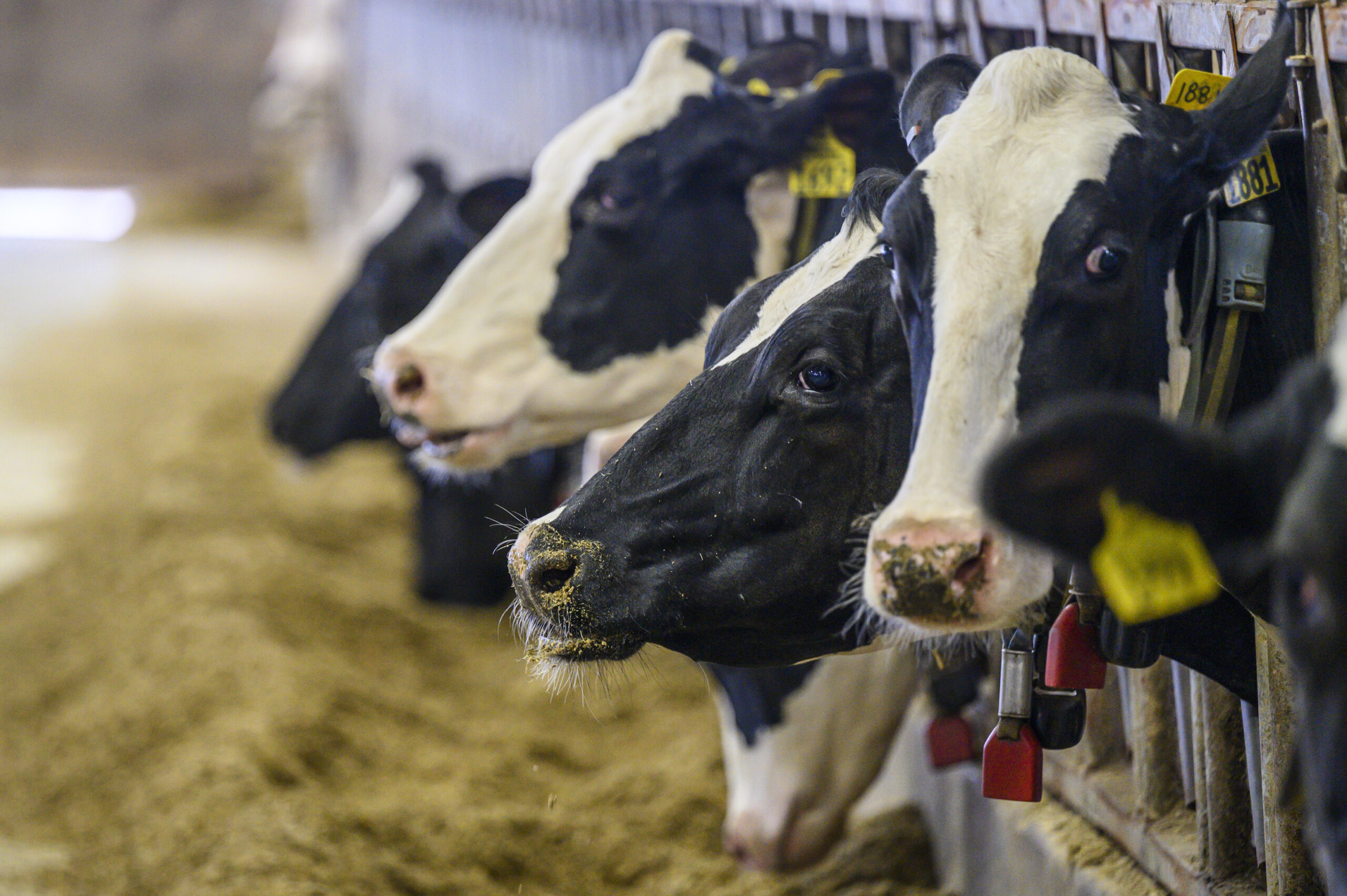Wisconsin lost 500 dairy farms in the last year, according to the latest numbers from the state Department of Agriculture, Trade and Consumer Protection.
There were 8,801 dairy herds licensed in Wisconsin as of Jan. 1, 2018. The number of dairies in the state has fallen more than 20 percent in the last five years. But milk production continues to grow every year as many commercial farms expand.
“The growth is really in the medium- to large-size dairy operations,” said Steven Deller, professor of agricultural and applied economics at the University of Wisconsin-Madison. “The growth in those sectors and the increase in productivity of being a bigger operation, the volume of milk is actually not being affected by this.”
Stay informed on the latest news
Sign up for WPR’s email newsletter.
Deller said it’s not profitable for dairy farms to operate on a small scale, so the number of commercial farms in the state is likely to continue to decline.
Kevin Bernhardt, a UW-Platteville agribusiness professor, said it’s not a bad thing for farms to grow larger. But he said having fewer farms in the state could hurt rural communities.
“Less farms, less number of kids going to schools, less number of people who are buying inputs and so forth, less number of people to serve on school boards and church councils, etc.,” Bernhardt said. “Less farms out there is not necessarily all negative, but it certainly has impacts on the rural community.”
But Deller said when farms aren’t able to be profitable, they aren’t contributing to the local economy.
“Do you want to have 10 small farms that are producing poverty level jobs or income levels, or do you want to have one big farm that pays decent wages? From the point of view from the local economy, you want that one bigger operation,” Deller said.
Deller said a growing interest in local food and specialty crops like hops, means there are still other kinds of farming opportunities for small producers in the state.
Wisconsin Public Radio, © Copyright 2025, Board of Regents of the University of Wisconsin System and Wisconsin Educational Communications Board.

